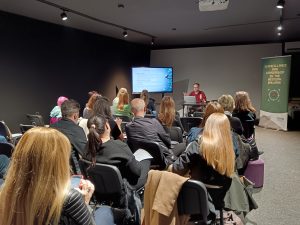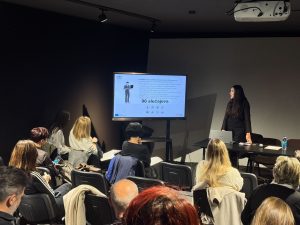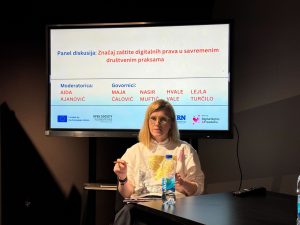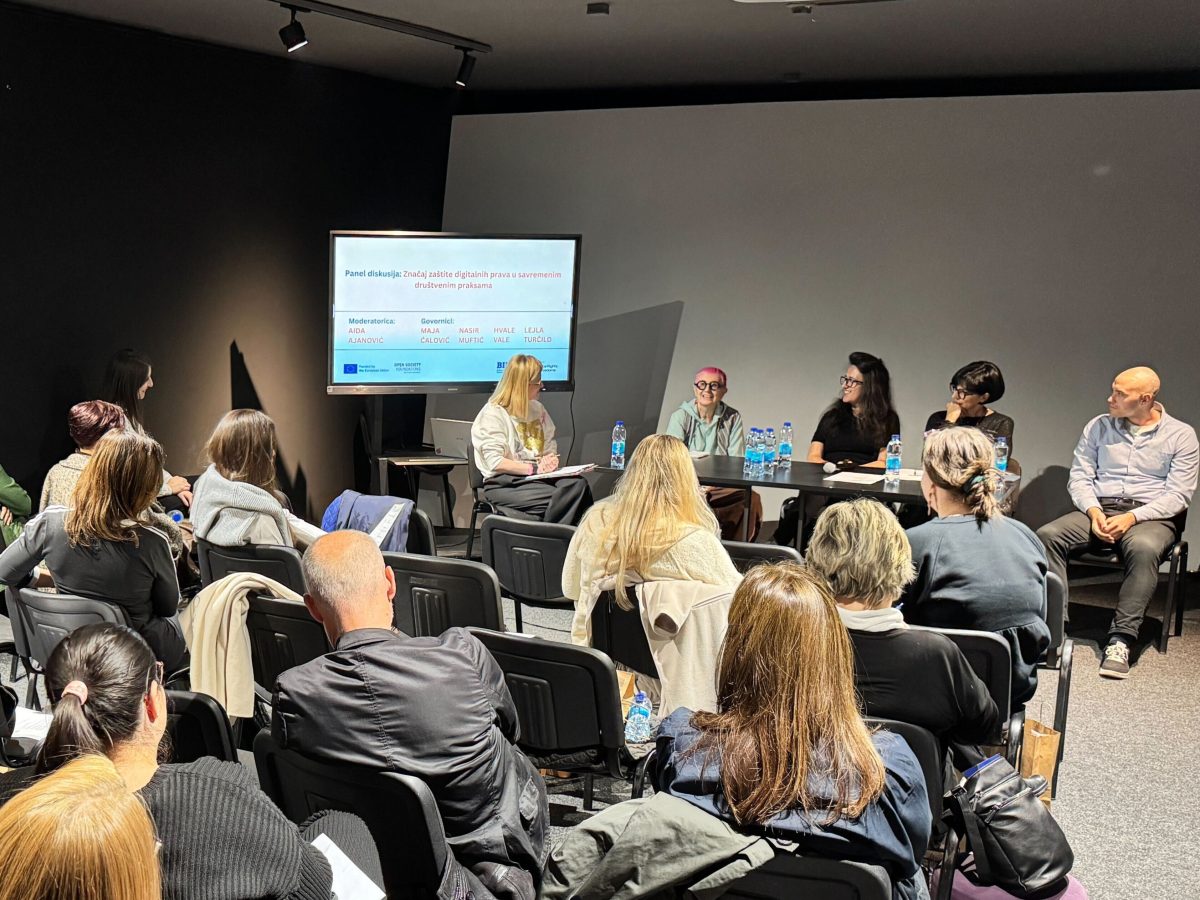The event opened with a presentation of the report, “Surveillance and Censorship in the Western Balkans.” Azem Kurtic, a journalist at BIRN and author of the Bosnia and Herzegovina country report, presented the key findings for Bosnia. The criminalization of defamation, the non-transparent use of surveillance cameras, and SLAPP lawsuits – most often used as tools to encourage journalists’ self-censorship – were among the issues highlighted in the report. The presentation sparked a discussion among participants, who shared their experiences, insights and perspectives on media freedom and digital rights in Bosnia and Herzegovina.

Fedja Kulenovic, from the Faculty of Philosophy, University of Sarajevo, led a session on the importance of self-protection in the digital environment. He discussed the evolution of digital threats, from phishing and spyware to the increasing use of artificial intelligence, covering topics such as identity protection, device security, tools for safe communication, and AI-related risks. He highlighted that connecting AI tools with various applications can lead to the unintentional exposure of sensitive data, emphasizing the importance of access control and regular permission reviews.

The second part of the event focused on digital rights. Selma Melez, a BIRN Bosnia journalist and country monitor for Bosnia and Herzegovina, presented findings from the 2025 digital rights violations monitoring activity. She noted that the most frequent cases involve online hate speech, disinformation, and online fraud, as well as AI-facilitated threats to digital freedoms, including image misuse and extortion, with children often being the primary victims.
The event concluded with a panel discussion, titled “The Importance of Safeguarding Digital Rights in Contemporary Social Practices,” moderated by Aida Ajanovic. Panelists included Maja Calovic, digital media expert at Mediacentar, hvale vale, a gender and digital rights expert, Nasir Muftic, lawyer and assistant professor at the Faculty of Law, University of Sarajevo, and Lejla Turcilo, professor at the Faculty of Political Sciences, University of Sarajevo.

The discussion offered legal, media, academic and activist perspectives on digital rights, addressing topics such as the legal framework in Bosnia, media and platform accountability, balancing freedom of expression and regulation, forms of online gender-based violence, digital literacy, and ethics.
Participants were actively engaged throughout the panel, stressing the importance of such gatherings for fostering dialogue on issues crucial to protecting digital freedoms.
Thirty participants attended the event, including 18 women.
This event was a joint initiative of the EU-funded project “Reporting Digital Rights and Freedoms” and the Open Society Foundation-funded project “Surveillance and Censorship in the Western Balkans.”
